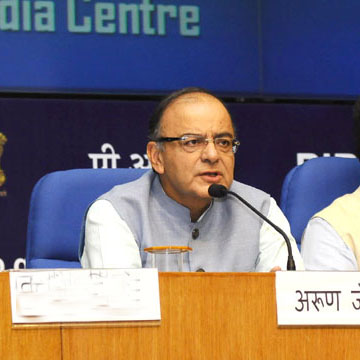 If
If there was one budget proposal that set the social media on fire, then it was the tax on withdrawal of employee provident fund (EPF).
In order to bring parity in tax treatment of various pension plans, Finance Minister Arun Jaitley’s budget has proposed that contribution made on or after April 1, 2016 by an employee participating in a recognised provident fund and superannuation fund, up to 40 per cent of the accumulated balance of such contributions on withdrawal shall be exempt from tax. In other words 60 per cent or the lion’s share of all subsequent contributions will be taxed.
In plain words, this is a morally wrong tax.
First of all the EPF barely earns enough money to beat inflation. They mostly invest in government securities, which give one of the worst yields in the market. So by the time an employee retires, the money he has in hand has roughly the same purchasing power at the time of saving.
Rather than appreciating his effort in nation building and giving him his rightful due, the government now wants to tax him even on his way to his golden years. Little wonder, the government has lost a lot of goodwill by this single act. Nearly six crore people are expected to be affected by this tax.
Presently social security schemes run by retirement fund body EPFO are tax free EEE (exempt-exempt-exempt) schemes. Deposits, interest accruals and withdrawal are tax free under the scheme. Under the new provision, if the EPF is not used for buying an annuity, then 60 per cent of the employee contribution made post April 1, 2016 will be considered as income and taxed as per the income bracket.
Firstly, there is little logic in making a retiring employee to compulsorily invest in an annuity instrument. He might prefer buying his dream home or start a business from the money saved throughout his working career.
Further, retiring employee would need to save all the money he could to meet his medical expenses post retirement. Apart from government employees, few private companies offer medical allowances post retirement.
The government cannot decide on where a retiring employee should invest, especially when all through his working career he was forced to invest in a poor instrument called EPFs.
Secondly, if the government wants to tax the EPF, it should allow employees to choose better higher yielding instruments which are tax efficient.
Finally government should have taken a lesson from the failure of NPS (National Pension Scheme) to attract funds. Presently in NPS out of the total corpus, the person needs to buy an annuity plan with the 40 per cent and of the remaining amount 60 per cent will be taxable.
Despite being offered an additional deduction of Rs 50,000 under Section 80CCD (1B) few have selected the NPS option.
Rather than correcting a bad instrument like NPS, Jaitley and his team of experts preferred to make all pension plans equally bad. Little wonder there was uproar in the social media with many saying that the government has stabbed salaried employees in the back.
If Pranab Mukherjee as finance minister would be remembered for introducing the retrospective tax, Arun Jaitley will go down in history as a finance minister who made retirement a bad word. #Source: The BS
 If there was one budget proposal that set the social media on fire, then it was the tax on withdrawal of employee provident fund (EPF).
If there was one budget proposal that set the social media on fire, then it was the tax on withdrawal of employee provident fund (EPF).